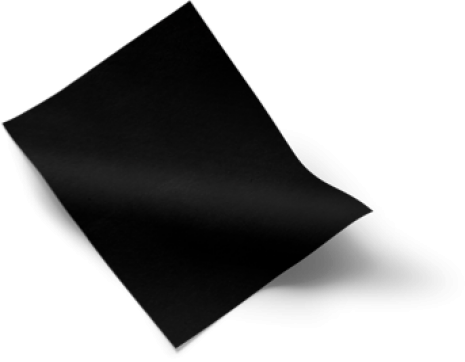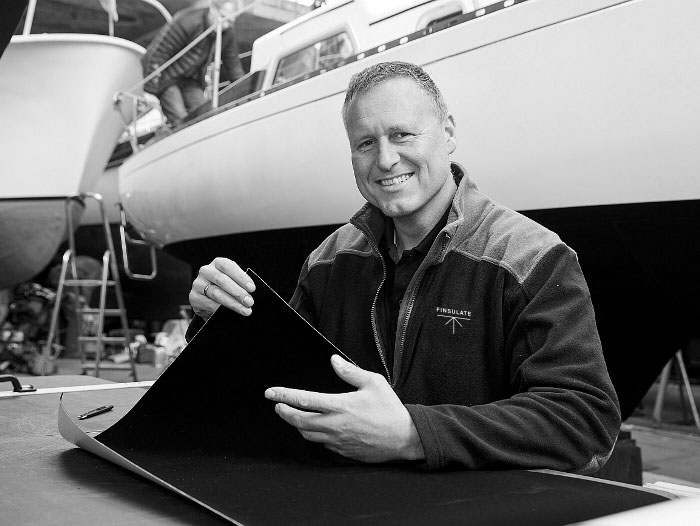We're hiring: Looking for Divers!
Finsulate is looking for divers interested in a side job.
And who want to learn about active water protection while working for us.
What is it about?
Short answer: The job would be to clean the hull of yachts and boats while these are moored or anchored. Frequency: In intervals of several months or even weeks. The work itself is safe, easy and there is no time pressure. And of course you would get a proper training from us prior to working for us. For this work you need good general health – about the same fitness level that allows you to dive in waters up to 10m deep.
Background:
Antifouling is the protection of surfaces immersed in water against on-growth of marine organisms. The hull of most yachts or boats of usually provided with antifouling. And also the hull of many other vehicles such as big cargo ships, ferries, lifeboats, house boats or floating storage platforms.
The problem:
Traditionally, the market of antifouling products is dominated by a handfull of big companies. The antifouling “solutions” offered by those companies turned out to be extremely toxic to marine life though. Also, many of the classical antifouling products, like toxic paints, have to be removed and re-applied year after year, in a tedious process which takes days. Each year, 100 (one hundred!) million of toxic antifouling paints silently enter our waters. 50% of which as paint particles and biocides, the rest of it evaporates as solvents (mainly xylene and toluene). These toxic chemicals are an insidious and silent poisoning of our marine ecosystems, invisible to most of us. Fascinating enough and despite mounting evidence of their spectacular impact on marine life, very few of those toxic products are explicitly forbidden. See here for a quick introduction and overview about the problem.
An award-winning, innovative solution
Finsulate is a product which was developed to stop that madness. Invented by a Dutch material scientist during 10 years of scientific research and development, it has been systematically introduced to the yachting market since 2017. And it won the European Innovation Award in 2019. Finsulate is a film which is applied, among other, to the hull of yachts. Completely non-toxic, free of pollutants or emissions. The film lasts for a minimum of 5 years (other structures: 10 years), protecting the surface underneath from on-growth of marine organisms. It is a passive protection, without harming any of the organisms trying to attach themselves to the surface.
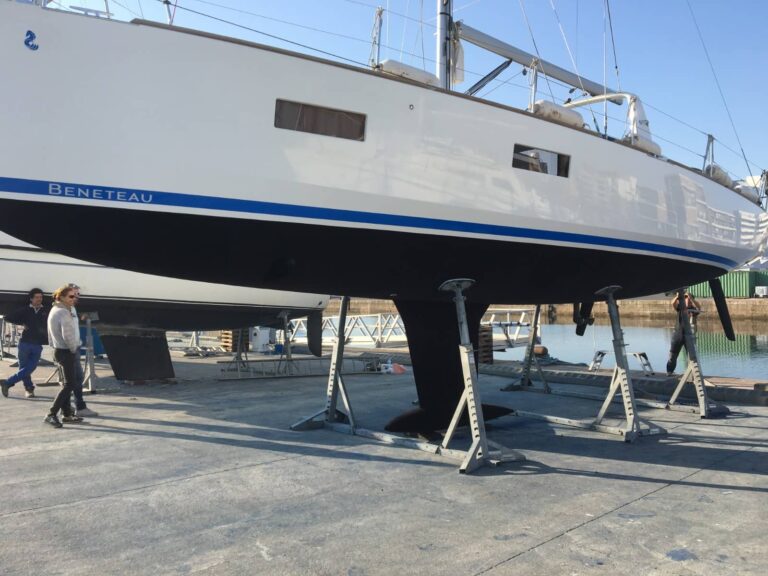
The Photo here above shows a Beneteau sailing yacht provided with Finsulate.
The film called Finsulate adheres very tightly to the hull. It features tiny fibres which constantly move in the water. No toxic substances, no sound. Marine organisms trying to attach themselves to the tiny fibres are passively deterred. After about 5 years (yachts) the film is replaced with a new one and the old one is properly disposed of.

This photo shows a close-up of the film. The fine fibres are fixated firmly on the carrying layer, in vertical position.
Learned from nature
Finsulate was invented by a diver!
Dutch material scientist Rik Breur got his inspiration while observing the highly effective, natural protection of the sea urchin during his diving tours: No parasites, no predators, no on-growth. By mimicking nature in his research and development, he gradually transferred those properties to the innovative antifouling film.
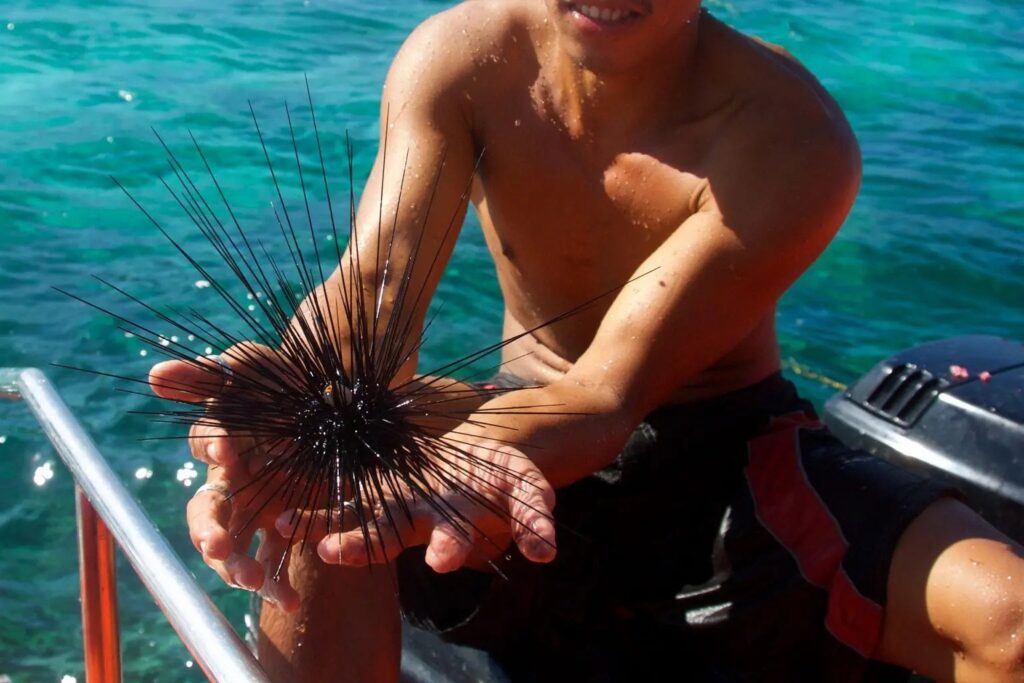
Learned from the sea urchin….photo credit: jonnie gogo on Pixabay.
Here is an animation explaining the working principle of Finsulate:
Depending on the quantity and variety of marine organisms present at a given location, Finsulate requires some periodic maintenance. Frequency of that maintenance ranges from just once or twice a year (arctic saline waters) to several times a year (wonderful tropics). The maintenance itself, where done often enough, is comparatively simple and quickly done.
Several maintenance options exist:
With a high-pressure cleaner which would require the boat or yacht to be lifted out of the water by crane. Up to 200 bar of pressure are no problem for the Finsulate film. Simple method, but yacht owners need the availability of a crane.
Alternative: Manually while the ship is in the water. And that’s the work which is offered here.
With that method, the hull surface of the ship is brushed or swept, with simple tools. With a bit of exercise, for instance, the Finsulate surface of a 30 ft yacht could be cleaned all around by one diver within one hour.
The following two videos show you how that is done in practise:
The plan behind all this and our experience: Being offered a diving service in the above described sense, more and more yacht owners can much more easily be convinced to switch to eco-friendly antifouling!
Finsulate is a very viable alternative to the notorious “apply & forget about it”- toxic antifouling. And a growing number of water sports enthusiasts know that it’s definitely not too early to actively protect marine life. Independent and eco-conscious water sports folks have always lived by those strong values anyway.
That having said, not every yacht or boat owner has ready access to a suitable ship crane. Many also are not able to do the cleaning works for their ship in the water by themselves. For most different reasons: Physical limitations, lack of time – or simply lack of patience to do the work properly. Add to this that getting a crane service for ya yacht in many places is prohibitively expensive. Yet still, many of those boat owners wish to contribute to the protection of marine life.
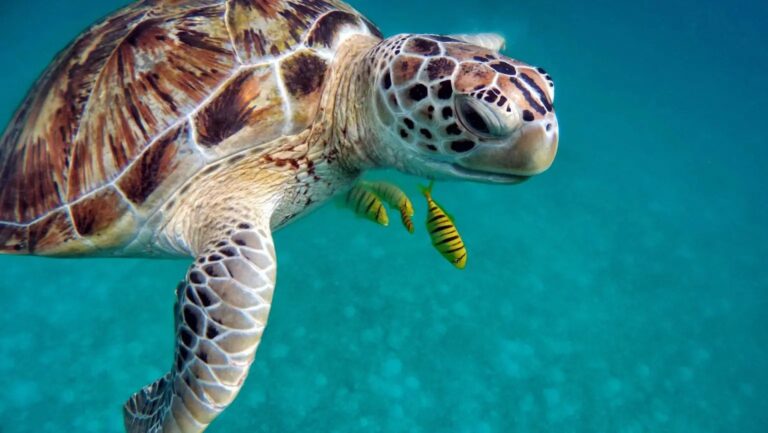
Photo credits: Find this fantastic turtle photo by Marcello Rabozzi at Pixabay.
Which is where you could come in.
We have started to prepare the periodic maintenance for Finsulate antifouling as an additional service offer. Over 600 yachts and boats are provided with Finsulate now and are cruising all around the world. Their number continues to grow rapidly. So depending on where you are based or how mobile you are, this kind of work over time could develop into a steady side income for you, throughout the year. We have started to build up a service network of interested divers in that sense. And we need a sufficient number of divers, able and willing to do this work, for the service to become an efficient, reliable and flexible one.
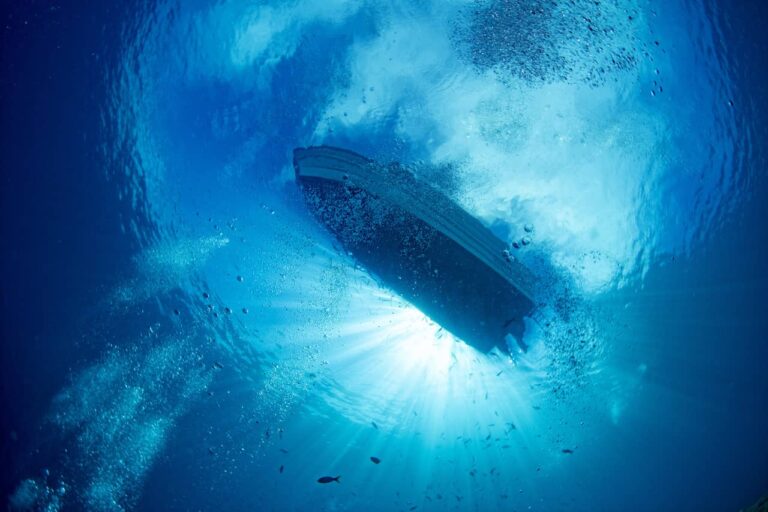
Basic diving fitness for depths up to 10m would be required for this work.
Sounds interesting?
If you want to become part of our service network of divers
get in touch with us, we’d love to hear from you!
By the way: This might also be a fine occasion to get some diving practise….
This kind of action can also lend itself very well for getting some diving experience in a controlled environment: Normally, the yachts where we maintain our Finsulate are berthed at a marina. But since the work itself is completely safe both for man, beast and plant and because the required tools are light-weighted and handy, we often do the maintenance while a yacht or boat is moored or anchored outside, for instance in a bay.
In other words: Should you happen to be a member of a diving school, an ngo dedicated to marine life protection, a lifeboat association interested in some diving exercise or simply a hobby diver wanting to get active with water protection: Contact us!

